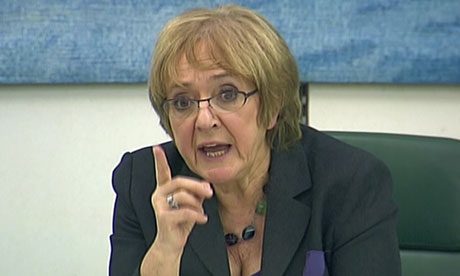The government has been called on to toughen up rules around academy trust finances after an investigation revealed 40 chains had spent more than £1 million on executive expenses, including luxury hotels and first-class travel.
The pay of academy chief executives will come under the spotlight again tonight, with a Channel 4 Dispatches investigation set to reveal more than half of the largest 50 chains pay their top bosses more than the prime minister’s £143,000 salary.
Money paid to businesses linked to trust directors and the expenses of executives will also feature.
The disclosures follow a series of investigations by Schools Week into academy expenditure, which included revealing the soaring costs of chief executives and trusts that paid departing staff “golden handshakes” of up to £50,000.
Having some key principles and simple controls will avoid this
The Dispatches investigation found the Academy Transformation Trust was paying to lease a XJ Premium Luxury V6 Jaguar car for its £180,000-a-year chief executive Ian Cleland. He also billed the trust £3,000 for servicing the car and buying new tyres.
Another £3,000 of trust cash was spent on first-class rail travel and meals at top restaurants, the investigation claimed.
Schools Week revealed in May the trust had told more than 100 staff across its 21 schools they face losing or having to reapply for their jobs as part of a £500,000 savings drive.
Cleland said at the time the trust was affected by “significant financial challenges”.
Mike Giddings, director of finance of ATT, said the trust’s “education of our pupils and supporting them and our staff to be the best that they can be and all expense claims are carefully considered to ensure that they are directly related to the operational costs of the business.”

The Paradigm Trust reportedly paid for broadband at the French holiday home of its boss Amanda Phillips, while the Aspirations Academy Trust paid nearly £90,000 for its American-based co-founder to fly over for consultancy work.
Micon Metcalfe (pictured right) , director of finance and business at Dunraven School, in London, writing for Schools Week today said it was “hard not to be shocked” by the findings.
She outlined nine expenses rules that trusts should follow, which included that any rail travel should be second-class and trusts should not be reimbursed for the cost of alcohol.
“No academy trust should want its expenses claims laid bare and open to criticism. Having some key principles and simple controls will avoid this.”
Mike Cameron, a school governor and former teacher, in a blog today said that “beefing up” language surrounding expenses and related-party transactions in the academies financial handbook would be the best way to stop such behaviour.
He said there should be a “general presumption” against related-party transactions unless they are “unavoidable”, and said trusts should have to publish such deals on their website immediately, alongside executive expenses.

Margaret Hodge (pictured left), former chair of the public accounts committee (which has previously criticised related-party transactions), went a step further and told The Observer such payments should be “outlawed”.
“If you are getting involved in schools for the public good, then you shouldn’t be making money out of it. Yet none of this stuff ever comes out because of the regulators discovering things.”
But Alison Talbot, partner and academy specialist at law firm Blake Morgan, writing for Schools Week last year said that statistics show more than 99.9 per cent of these transactions did not pose a risk to public money.
She added that if trusts choose to rule out related-party transactions they may “miss out” on good value-for-money deals.
Figures obtained by the Labour party in April found more than 40 per cent of academy trusts had made related-party payments in the 2013-14 financial year.
Of the 2013-14 transactions, a total of just 26 of these were deemed improper. However the government admitted it had not recouped any of the cash from the irregular payments.
The Department for Education (DfE) said all related-party transactions must be disclosed in trusts’ audited accounts – which are then published and available for public scrutiny, something which is not possible for local authority-maintained schools.
The DfE also publishes its investigations into alleged financial mismanagement at academy trusts, which has led to high-profile cases, including the Durand Academy Trust and the Perry Beeches Academy Trust.
A DfE spokesperson said: “Academies are charitable organisations, cannot make a profit and are subject to stricter oversight and accountability than council-run schools. One of the strengths of the academy system is that where issues of any kind are identified we can take swift action.”
They added related-party transactions can “save money allowing schools to use resources more effectively”.








Note the standard formula:
“Academies….. are subject to stricter oversight and accountability than council-run schools.”
This is mere assertion without evidence. For some idea of what the limitations of the supervision of Academies are look at this blog post by Janet Downs….
http://www.localschoolsnetwork.org.uk/2014/10/how-big-a-problem-is-financial-malpractice-in-academy-trusts-can-the-efa-cope
How about the fact that academies are required to be audited every year by an independent firm of accountants? What similar obligations are there on council-run schools?
Nobody is saying all academies are perfect, and systems can always be improved, but local government has had its fair share of scandal and financial mismanagement over the years. Glibly saying that the problem lies with ‘academies’ or ‘local authorities’ does nobody any favours.
Accounts of LA schools are consolidated into LA accounts and each LA school has an LA governor who can keep an eye on contracts.
Independent auditing doesn’t necessarily pick up financial irregularities. Neither does it comment on value for money.
The academy system unfortunately lends itself to deals by which academy trustees can benefit. But they’re spending public money and any possibility of personal profit such as related-party transaction should be stopped.
OK, so considering your points:
1. If every school in an LA’s area is consolidated into the overall LA accounts where is the transparency and public accountability? Where can I, as a member of the public, see and understand the accounts for a specific LA run school?
2. Of course an independent auditor cannot be guaranteed to pick up irregularities or value for money. However neither can an LA governor. I have come across a number of schools where the LA governor is either (a) frequently absent, (b) not appointed, or (c) not sufficiently financially experienced to provide the necessary checks and balances.
3. The system of an LA running a school lends itself to deals by which LA employees can benefit. LAs aren’t exactly paragons of financial virtue – try reading http://www.independent.co.uk/news/uk/home-news/routine-use-of-council-gagging-orders-leaves-britain-open-to-corruption-a6966621.html
4. As has been pointed out many times, the law and rules are that people spending money in academies cannot make personal profit, by way of related-party transactions or otherwise.
What about if an academy needs some building renovation work done, goes out to the market and gets quotes ranging from £150,000 to £200,000. However one of the academy’s directors runs a construction company and offers to do the job for £120,000 on the basis that he won’t make any profit from the job and will not charge for his time.
This is a related party transaction, and is avoidable, but clearly is beneficial to the academy and the public purse. It’s absolutely right that the details are made public, and that those involved in running academies do not profit from their position, but where is the sense in a blanket ‘outlawing’?
It’s not just impropriety, it’s the appearance of impropriety. Why should schools which are spending public money not be bound by the same procurement rules as the rest of the public sector. If it’s such good value let it go through competitive tendering like everything else. They should ban related party contracts altogether
Just to point out they are already bound by exactly the same procurement rules as apply to the rest of the public sector. Under procurement legislation academy trusts are subject to the same obligations as local authorities, NHS Trusts etc.
As per my example above, if a related party contract is demonstrably better value for the school, and its details are made public, why would you want the school to have to pay more than it has to?
Why can’t the related party just make a bid for the contract like all the other bidders? If they really are doing the work cheaper they will win the contract. If genuine in your commitment to public service rather than feathering your own nest, why would you not get the work through bidding openly? When a contract is awarded because it is “at cost”, bells should start ringing.
Giving work to your buddies leads to corruption. I do not believe that companies are doing work for Trusts at cost price. There is always a payback required. We should not manage our education system like the Cosa Nostra. Without competitive bidding it is impossible to even judge what cost price is. Let’s clean the stable before it gets any more grimy.
“I do not believe that companies are doing work for Trusts at cost price” – on what basis do you make that comment? Have you conducted your own research, are you relying on someone else’s research, or is that just your personal opinion based on nothing other than your own preconceptions? BTW you may want to read the Academies Financial Handbook which is clear on this point.
I agree that everything should be open and transparent and contracts only awarded after an open bidding process – no-one is saying that contracts should be simply ‘given’ to anyone. See my previous comment above at 12.00 on 26 July. Making references to “managing our education system like the Cosa Nostra” is hardly sensible.
Academy rules say related party transactions should be properly procured, reported in accounts and ‘at cost’. But the National Audit Office, no less, said finding evidence for ‘at cost’ would be difficult. This is especially true, it said, for services which where costs were subjective. It reported that academy auditors would find the rules difficult to apply. https://www.nao.org.uk/wp-content/uploads/2014/11/Investigation-into-the-Education-Funding-Agencys-oversight-of-related-party-transactions-at-Durand-Academy-sum.pdf
Yes, or course it’s going to be difficult to determine in practice what “at cost” means but (a) it is for the relevant individual to provide the evidence and if they cannot then the transaction should not proceed, and (b) why does it being difficult mean it is an insurmountable problem?
I also note that you somehow overlooked the part of the NAO report which said that some of the conflicts of interest “were established before the school became an academy”. Not all the woes can be laid at the door of academy status then …
Arguing about academy v maintained is the dead cat on the table. Surely we should all be appalled that funds meant for improving outcomes for children and young people is being used to over improve life styles for adults.
Couldn’t agree more. There are good and bad people in the academy sector and good and bad people in the state sector. The more it’s rooted out and exposed in all areas the better.
I am still looking for the advantages in education terms of academy status..
In terms of Finance — while it might be legal .transactions can be immoral…Trust CEO salaries will go through the roof whilst Teachers pay will lag behind inflation ..WHY ..See the scandal of University Vice Chancellors pay…Greed emerges without parameters re pay being in place…there is so much evidence…but still looking for the answers to my first question…
Academisation , to me , is merely the privatisation of education, i.e. a philosophical change rather than an educational improvement tool